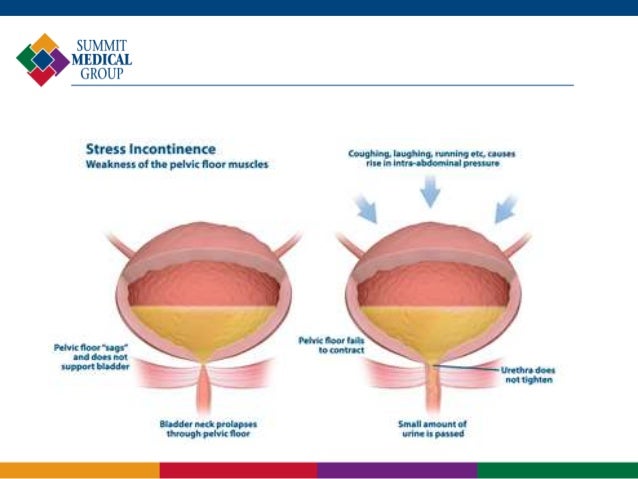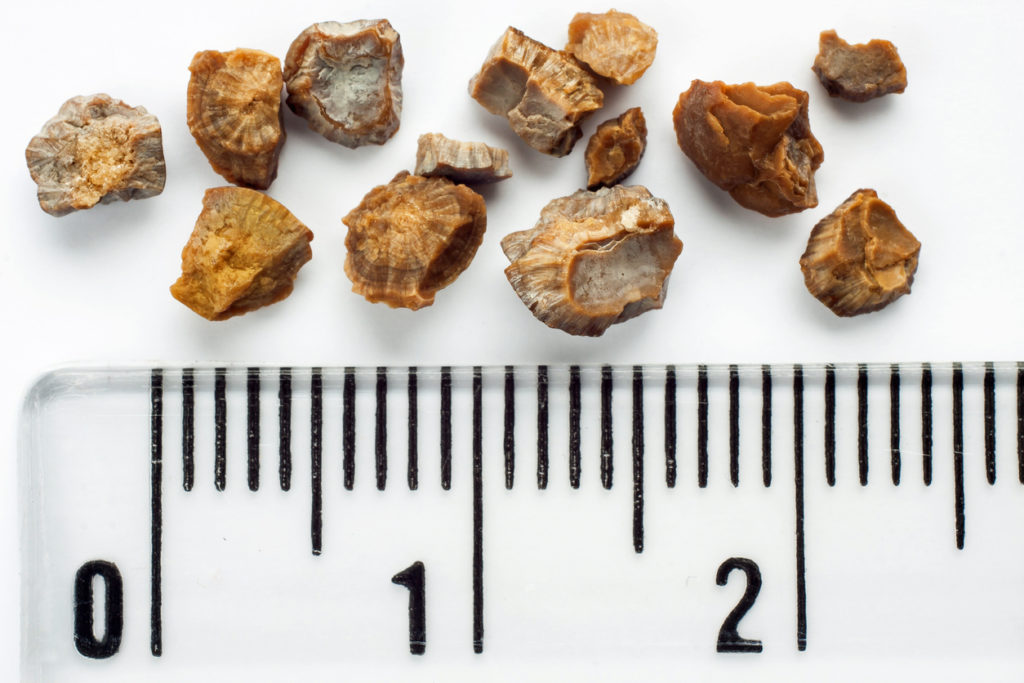
It's usually a combination of stress and urge incontinence. Mixed incontinence means that you have more than one type of incontinence.For example, someone with arthritis may have trouble unbuttoning his or her pants, or a person with Alzheimer's disease may not realize they need to plan to use the toilet. Functional incontinence happens when a physical or mental disability, trouble speaking, or some other problem keeps you from getting to the toilet in time.Some of the causes include tumors, kidney stones, diabetes, and certain medicines. Your bladder gets too full, and you leak urine. This causes too much urine to stay in your bladder.

Overflow incontinence happens when your bladder doesn't empty all the way.It can also happen in some neurological conditions, such as multiple sclerosis and spinal cord injuries. It can sometimes be a sign of a urinary tract infection (UTI). Urge incontinence is most common in older people. It is often related to an overactive bladder. Urge, or urgency, incontinence happens when you have a strong urge (need) to urinate, and some urine leaks out before you can make it to the toilet.Causes include weak pelvic floor muscles and the bladder being out of its normal position. This could be due to coughing, sneezing, laughing, lifting something heavy, or physical activity. Stress incontinence happens when stress or pressure on your bladder causes you to leak urine.Each type has different symptoms and causes: What are the types of urinary incontinence (UI)? In any case, it can get better with proper treatment. It can range from being a minor problem to something that greatly affects your daily life. If you are experiencing kidney stone symptoms, or have a history of kidney stones, contact Urology Austin to schedule an appointment.Urinary incontinence (UI) is the loss of bladder control, or being unable to control urination. Discuss, with a medical provider, if you should be taking calcium supplements.ĭeveloping a kidney stone is a common problem for both men and women.Reduce the intake of foods that are rich in calcium oxalate, such as spinach and rhubarb.Reduce the intake of animal proteins such as meat, eggs, and fish, especially if the individual is prone to calcium oxalate or uric acid stones.Avoid dehydration by drinking plenty of fluids.There are several steps that can be taken to help prevent the formation of kidney stones: Finding it difficult to urinate / urinary retention.


Urine that is foul-smelling or appears cloudy.When this happens, they may notice one or more of the following symptoms: Individuals may not be aware that they have a stone until it begins to move. Having inflammatory bowel disease or chronic diarrhea.Obesity or having had gastric bypass surgery.A diet that is high in protein and sugar.A high sodium diet that creates excess calcium.Decrease in fluid intake / dehydration.There are several factors that can promote kidney stone formation: This extremely painful condition afflicts people of all ages and races. Cystine: These stones are less common and are associated with Cystinuria, a genetic condition.Struvite: These stones are associated with infections.Uric Acid: This type of stone can form when urine is too acidic.Calcium: Calcium oxalate stones are the most common.There are four common types of kidney stones: Typically, pain will begin in the upper back, radiate to the front abdomen, and proceed down to the groin. Depending on their size and location, stones can be excruciating when they begin to move or become lodged. Kidney stones are an accumulation of minerals that form somewhere within the urinary system. Kidney stones are a very common and painful urologic condition that may or may not require medical attention. Each year, thousands of people visit an emergency room or urology office because of kidney stones.


 0 kommentar(er)
0 kommentar(er)
